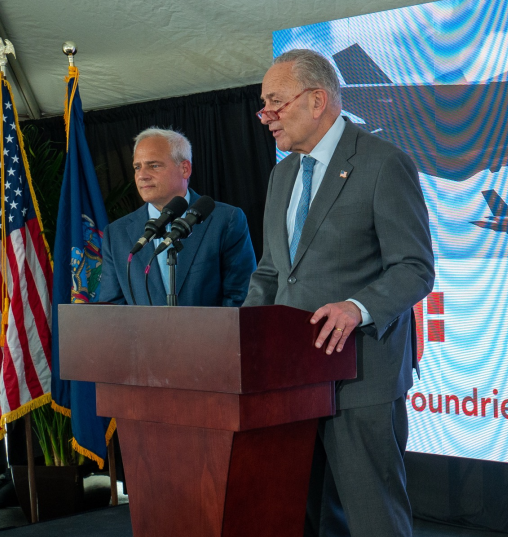[ad_1]
//php echo do_shortcode(‘[responsivevoice_button voice=”US English Male” buttontext=”Listen to Post”]’) ?>
—Part of this EE Times series: A Vulnerable U.S. Electronics Supply Chain. Other articles in the series include: Experts: U.S. Military Chip Supply Is Dangerously Low, Reshoring Chip Industry Risks Failure With Just More Fabs, USA Rare Earth Aims to Break China’s Grip, and U.S. Crawls Toward Rebuilding Frail PCB Industry.
GlobalFoundries (GF) and Lockheed Martin are set to work jointly to “advance U.S. semiconductor manufacturing and innovation and to increase the security, reliability and resiliency of domestic supply chains for national security systems,” the pair told the press today.
The collaboration will allow Lockheed Martin to “more quickly and affordably produce secure solutions that increase the competitiveness and national security of the United States,” the firms said in prepared remarks.

In January, EE Times reported on the dangerously low supply of U.S. military chips. That report made it clear that if a war involving Taiwan were to break out in the next decade, the U.S. Department of Defense’s ability to respond effectively would be challenged by the Russia-Ukraine War, competition from commercial chip buyers and an over-reliance on Asian semiconductor suppliers.
Today, U.S. Senate Majority Leader Charles Schumer joined Lockheed Martin CEO Jim Taiclet and GF CEO Thomas Caulfield in upstate New York to announce the partnership.
The new partnership “brings together two giants… to ensure that the chips used in the technology that keep our country and our troops safe are made right here in the capital region,” Schumer said. “I wrote my CHIPS & Science Act to spark partnerships like this… Now more than ever, we need to secure our supply chains, and make sure the chips that our military relies on are built in places like the Capital Region, not overseas.”
Involved in the joint work is the exploration of “critical needs in semiconductor innovation and secure manufacturing across a range of advanced and next-generation chip technologies,” including:
- Gallium nitride on silicon to help chips work at higher temperatures,
- Silicon photonics for low-power and high-speed data transport, and
- 3D heterogeneous integration for optimized chip packaging that improves performance.
The companies will also work to develop a chiplet ecosystem to produce chips more rapidly and affordably, they told the press.
GF’s manufacturing facilities in New York and Vermont have “trusted accreditation” from the U.S. government, allowing the workers there to produce “secure chips for use in the nation’s most sensitive systems on land, air, sea, and in space,” the companies told the press today.
[ad_2]
Source link

